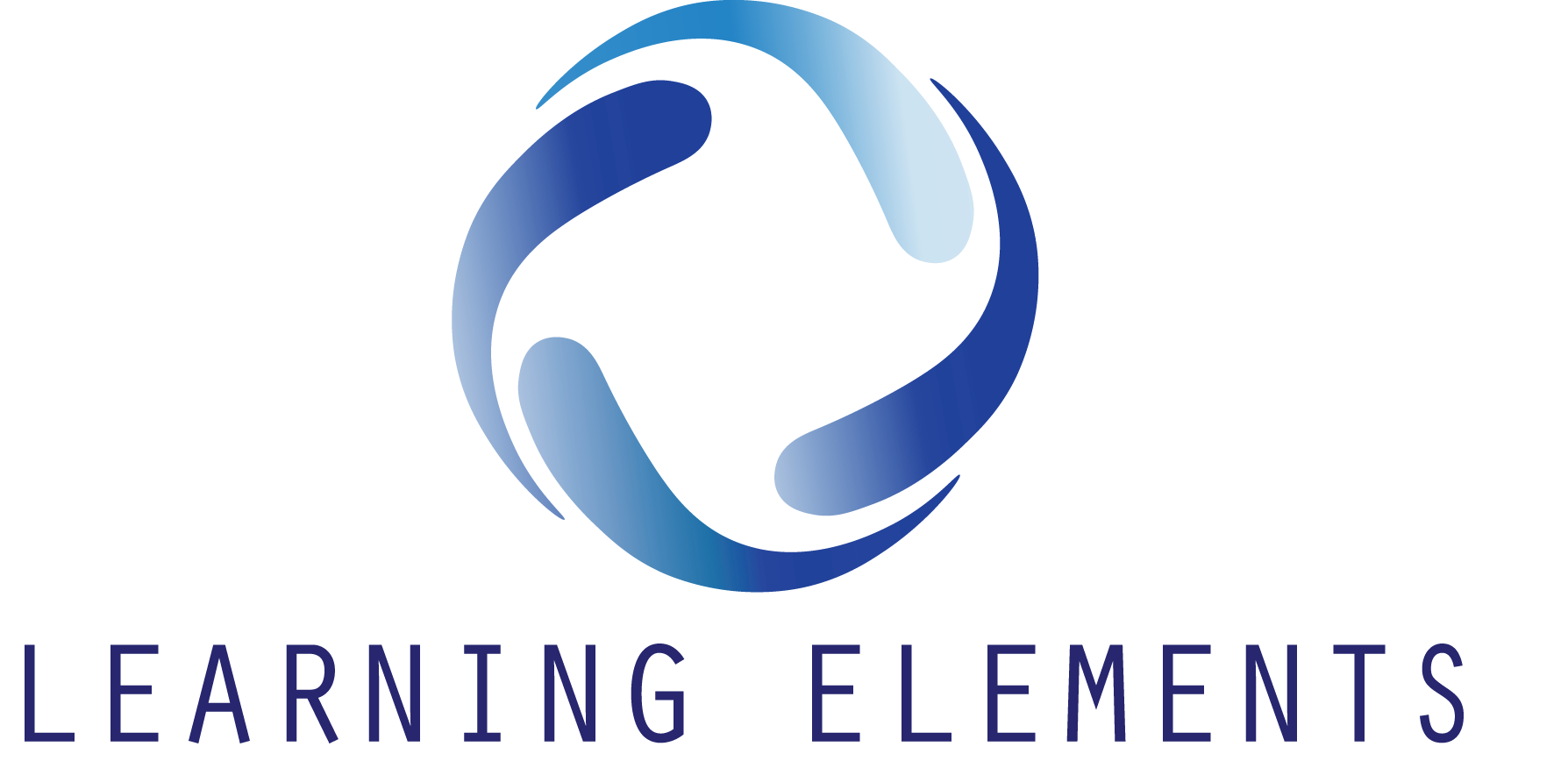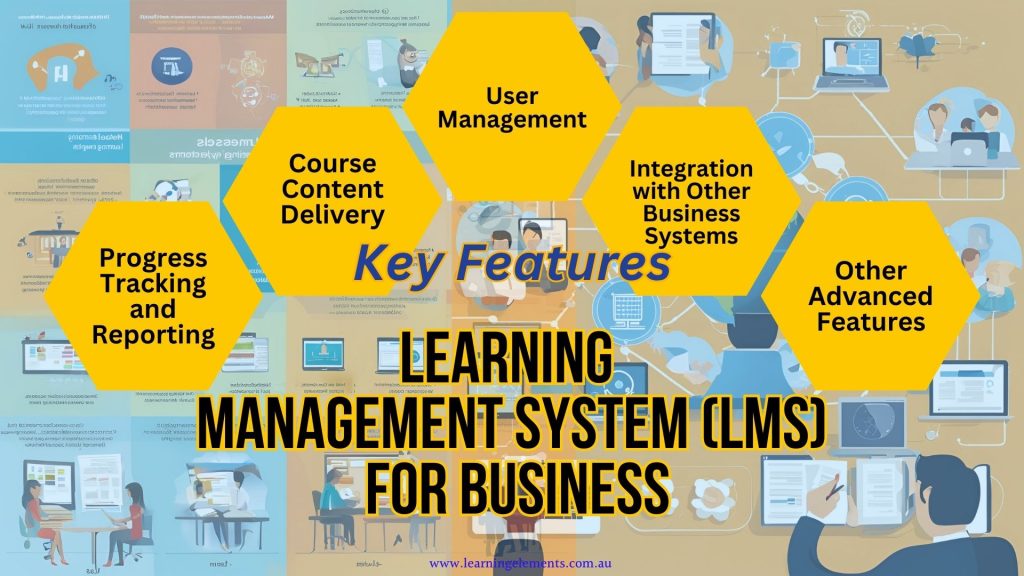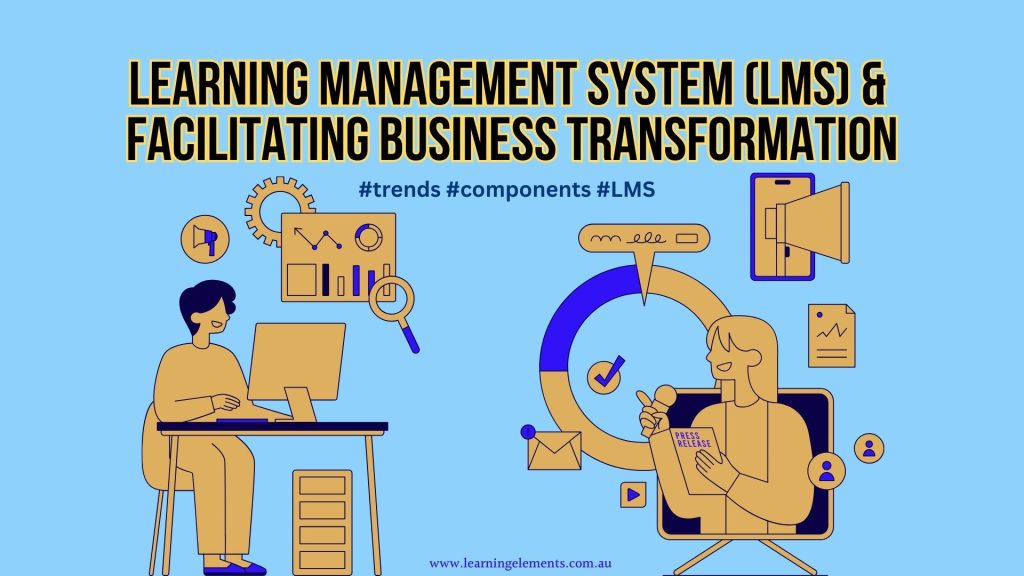Learning Management System for Business
Why should businesses invest in tools that boost their workforce’s skills and productivity? A Learning Management System (LMS) is a solution that centralises training, simplifying the management, delivery, and tracking of learning across an organisation. An LMS helps streamline training processes, ensuring efficient skill development and productivity improvement across teams. Whether you run a small business or a large enterprise, understanding the benefits of a Learning Management System tailored to your needs can help you make smarter decisions about your training strategy.
Understanding Learning Management Systems
Learning Management Systems (LMS) are widely used across various sectors, from education to corporate environments. While educational institutions have long utilised LMS platforms for e-learning, the corporate sector has adapted these systems to focus on business-specific needs. Companies have leveraged LMS platforms to centralise and streamline training, development, and compliance across diverse industries. Models range from simple course delivery tools to sophisticated systems integrated with HR and other business operations, demonstrating the flexibility of LMS.
There are various models of Learning Management Systems beyond business-focused applications. For instance, educational institutions often use platforms like Moodle and Blackboard, while businesses may adopt systems tailored specifically for corporate training, such as SAP LMS or TalentLMS. Understanding where business LMS platforms fit into learning technologies can help organisations choose the best system for their needs. Models like VARK (Visual, Auditory, Reading, Kinaesthetic) and Kolb’s Experiential Learning Theory have also influenced the design of LMS platforms, providing a foundation for developing diverse learning strategies.
What is a Learning Management System for Business?
Defining a business-focused LMS
Learning Management Systems (LMS) are software platforms designed specifically to manage, deliver, and track training. However, their integration with strategic business goals varies depending on the approach. Some LMS platforms provide advanced automation and reporting features that align training efforts with organisational objectives, while others may require customisation to reach similar integration levels.
Key Features Tailored for Business Needs
Key features of a business-focused LMS include user management, course content delivery, progress tracking, reporting, and integration with other business systems. These features ensure that training is not only delivered effectively, but also aligned with the strategic goals of the organisation. Advanced features such as AI-based learning paths, gamification, and mobile compatibility are also common.
–User Management
Efficient user management allows businesses to organise and oversee learners across different departments, locations, or teams. Administrators can easily add, remove, or categorise users, assign roles, and set permissions, ensuring that each employee has access to the appropriate courses and resources.
–Course Content Delivery
An LMS provides a centralised platform for delivering diverse training materials, including videos, documents, quizzes, and interactive modules. It supports various content formats, enabling businesses to create engaging and informative courses tailored to different learning styles.
–Progress Tracking and Reporting
Monitoring progress is crucial for assessing training effectiveness. An LMS offers detailed tracking and reporting tools, enabling managers to see who has completed courses, which modules were most engaging, and how employees are progressing. These insights help identify skill gaps and areas for improvement.
–Integration with Other Business Systems
Seamless integration with existing business systems, such as HR software, CRM platforms, and productivity tools, is a vital feature of a business-focused LMS. This connectivity ensures that data flows smoothly across systems, reducing administrative workload and maintaining consistency in employee records.
–Advanced Features
- AI-Based Learning Paths: Modern LMS platforms often include AI capabilities to create personalised learning paths based on individual performance, learning preferences, and job roles. This helps employees focus on relevant skills and progress efficiently through their training.
- Gamification: Adding elements like quizzes, badges, leaderboards, and rewards makes learning more interactive and enjoyable. Gamification increases engagement, motivation, and knowledge retention.
- Mobile Compatibility: Mobile-friendly LMS platforms enable employees to access training content at any time and from anywhere, via smartphones or tablets. This flexibility is especially beneficial for remote teams and on-the-go learning.
–Customisable Learning Paths
A key feature for businesses is the ability to create custom learning paths that align with specific roles and departments. This ensures that employees receive training relevant to their job responsibilities, boosting the effectiveness of the training programme.
–Built-In Course Libraries
Many LMS platforms come with built-in libraries containing pre-made courses on various topics, from compliance and safety to soft skills and technical training. This saves time for businesses that need to implement standardised training quickly without creating all content from scratch.
–Customisable Branding
To ensure consistency with the company’s identity, business-focused LMS platforms offer custom branding options. Companies can tailor the interface, colours, logos, and course templates to reflect their brand, providing a cohesive learning experience that aligns with the organisation’s culture.
–Assessment and Certification
Built-in assessment tools, such as quizzes, tests, and assignments, enable businesses to evaluate employees’ understanding of the material. Additionally, many LMS platforms offer certification features, allowing companies to provide employees with certificates of completion, which can be used for compliance and professional development tracking.
–Automation for Efficient Learning Management
Automation features handle routine tasks such as enrolments, reminders, progress updates, and report generation. This reduces the administrative burden on HR and training managers, helping ensure that training programmes run smoothly and efficiently.
–Scalability
Business LMS platforms are designed to grow with the organisation. As companies expand, the LMS can scale to accommodate more users, more courses, and more complex training needs, ensuring continuous support for business growth.
–Data Security and Compliance
LMS platforms for businesses come with robust data security measures to protect sensitive employee information. They also help ensure compliance with industry regulations by securely storing training records and certifications.
A business-focused LMS should do more than just deliver content — it should support your organisation’s goals, scale with your needs, and simplify training management. If you’re planning to implement or improve your LMS, we can help you choose the right features for your setup.
Need guidance on what suits your business best? Talk to a specialist or learn more about how a tailored LMS can work for you.
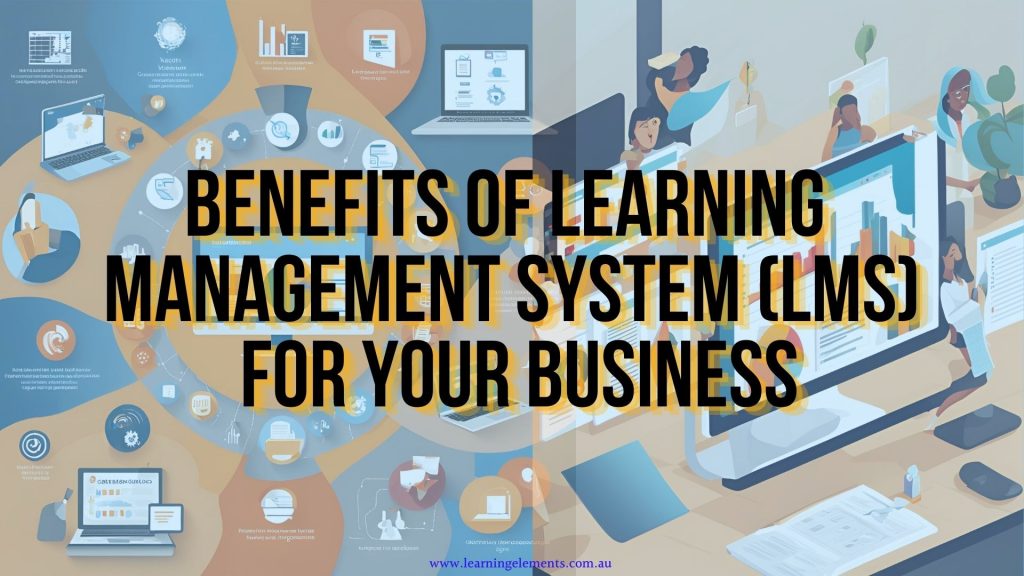
What Are the Benefits of a Learning Management System for Business
–Centralised Training and Development
One of the main benefits of a Learning Management System for business is the centralisation of training resources. All training materials, assessments, and learner records are stored in one place, making it easy for employees to access the resources they need and for managers to track progress.
–Improved Employee Performance and Productivity
An LMS helps improve employee performance by providing consistent and up-to-date training. Employees can access learning materials at their convenience, which leads to better knowledge retention and skill application in their roles. This, in turn, boosts overall productivity within the organisation.
–Cost-Efficient Training Solutions
Traditional training methods can be costly, particularly when factoring in travel, venue hire, and instructor fees. An LMS offers a cost-efficient alternative by enabling online training, which can be accessed by employees from anywhere, at any time.
An LMS can be a cost-efficient solution for small businesses, but this depends on factors such as the platform’s pricing model, feature set, and how it is utilised. While some systems offer affordable packages, others might charge based on user numbers, potentially increasing costs as the team expands. Careful evaluation of your training needs and budgeting can help ensure the LMS remains a cost-effective choice.
The Application of LMS in Modern Corporate Training
The use of LMS in businesses has grown significantly, especially with the shift towards remote and hybrid work environments. Organisations now rely on LMS platforms to provide flexible training solutions that employees can access from anywhere. This shift has allowed companies to maintain consistent training quality across locations, reduce costs associated with in-person training, and improve the overall accessibility of professional development opportunities.
Application in Remote and Hybrid Work Environments
With the shift towards remote and hybrid work environments, LMS platforms have become even more crucial. They allow companies to deliver consistent training regardless of geographical location, making it possible for remote teams to stay aligned with company standards. Features such as mobile compatibility, webinars, and virtual classrooms ensure that employees have the flexibility to learn when and where it suits them. For instance, companies can onboard new hires remotely by providing comprehensive training modules through the LMS, streamlining the process, and ensuring that all staff receive the same quality of training.
Enhancing Workforce Productivity with an LMS
Flexible Learning Paths for Employees
A Learning Management System for business allows for the creation of flexible learning paths that cater to different roles and departments within the organisation. This ensures that each employee receives training that is relevant to their role, thereby increasing its effectiveness.
–Examples of Effective LMS Usage
For example, an LMS could be used in a retail business to train new hires on sales techniques through role-specific courses. Meanwhile, a manufacturing company might employ an LMS to ensure all employees complete safety compliance training efficiently. These tailored approaches demonstrate how businesses can effectively leverage LMS platforms to address specific needs.
–Self-Paced Learning and its Impact on Productivity
Self-paced learning, a key feature of many LMS platforms, allows employees to complete training at their own pace. This flexibility reduces the pressure of deadlines and enables employees to learn when it best fits their schedule, resulting in better retention and application of the material.
Scalability and Adaptability
While many LMS platforms are designed to scale with business growth, not all systems offer the same level of scalability. Some platforms may require upgrades to accommodate increasing employee numbers, and customisation options can vary significantly. Therefore, choosing an LMS that can adapt to your company’s specific needs is essential for long-term success.
–Scaling Training Programmes with Business Growth
As businesses grow, so do their training needs. A LMS for business can easily scale to accommodate an increasing number of employees, ensuring that your training programmes can grow alongside your business.
–Customising Learning for Different Departments and Roles
An LMS allows for the customisation of training programmes to suit the needs of different departments and roles within the organisation. This ensures that all employees receive training that is specifically tailored to their job functions and responsibilities.
Looking to implement or upgrade your LMS? We’ll help you align the platform with your team’s goals and your company’s structure.
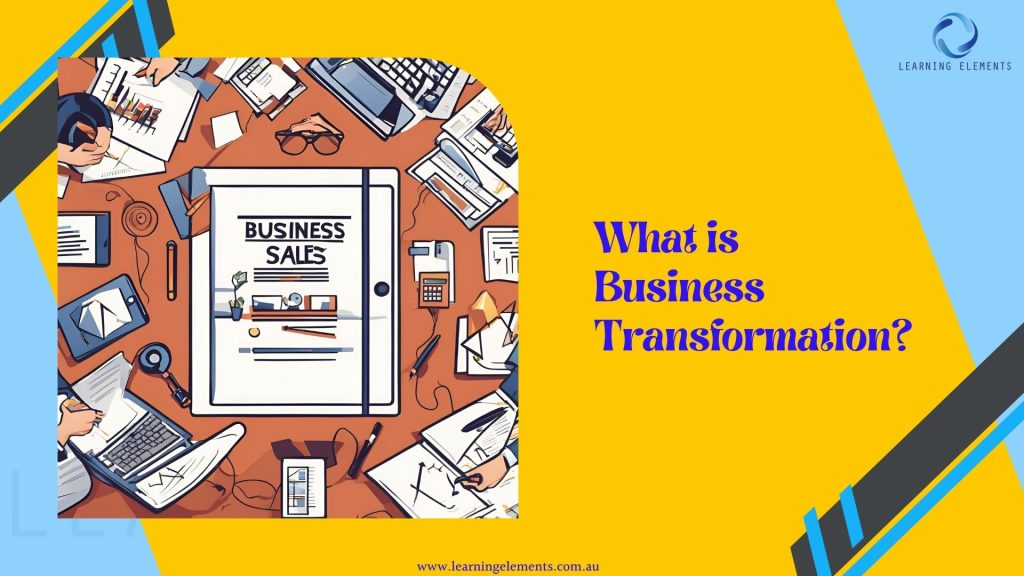
Supporting Business Transformation
Aligning Training with Strategic Business Goals
A Business Learning Management System supports organisational transformation by aligning training programmes with the strategic goals of the company. This ensures that employees are not only well-trained but also equipped with the specific skills needed to drive business success.
Driving Business Success Through Skill Development
Skill development is essential to the success of any business. An LMS provides a structured and consistent approach to developing the skills of your workforce, ensuring that they are capable of meeting the challenges of a dynamic business environment.
Integration with Business Systems
Streamlining Processes with Technology Integration
An LMS can be integrated with other business systems, such as HR and CRM platforms, to streamline processes and ensure a seamless flow of information across the organisation. This integration enhances the efficiency of training programmes and ensures that learning initiatives are aligned with other business processes.
Automation Features for Efficient Learning Management
Automation features within an LMS can handle many of the administrative tasks associated with training, such as enrolment, progress tracking, and reporting. This reduces the workload for administrators and ensures that training programmes run smoothly.
Key Considerations When Choosing a Learning Management System for Your Business
When selecting an LMS, businesses should consider factors like scalability, integration capabilities, ease of use, and cost. While some systems offer extensive customisation options, others provide out-of-the-box solutions that may suit smaller businesses with straightforward training needs. Additionally, the ability to generate detailed reports and track training compliance is essential for businesses in regulated industries. Understanding your business needs and growth plans will help you choose the right LMS platform.
Successfully implementing an LMS requires more than just choosing the right platform. Organisations need to plan how the system will integrate with their existing infrastructure and processes.
Key factors to consider include:
- User Experience (UX): Ensure the platform is user-friendly for both administrators and learners.
- Content Migration: Plan for how existing training materials will be transferred to the new system.
- Continuous Support: Choose a provider that offers robust technical support and regular updates to keep the platform running smoothly.
- Data Security: Since LMS platforms store sensitive employee data, ensure the system complies with relevant data protection regulations.
Improving Compliance and Standardisation
Ensuring Consistent Training Across the Organisation
A Learning Management System for business ensures that training is consistent across all levels of the organisation. This is particularly important for businesses that need to comply with industry regulations and standards.
Meeting Regulatory Requirements with an LMS
In regulated industries, an LMS ensures all employees receive the necessary training to meet compliance standards, reducing the risk of non-compliance and associated penalties.
Limitations of a Business-Focused LMS
While LMS platforms offer several benefits, there are limitations. Not all systems are equally adaptable, and customisation can sometimes increase costs. Additionally, an LMS cannot replace the need for practical, hands-on training in some roles. Therefore, businesses should use an LMS as part of a comprehensive training strategy that includes various approaches.
FAQs
- What is the main purpose of a business-focused LMS?
The main purpose of a business-focused LMS is to manage, deliver, and track training programmes within a corporate setting. It helps businesses streamline their training efforts and align them with strategic goals.
- How can an LMS improve my company’s productivity?
An LMS improves productivity by providing employees with consistent, up-to-date training that enhances their skills and knowledge. This leads to better performance and greater efficiency in their roles.
- Is an LMS cost-effective for small businesses?
Yes, an LMS can be a cost-effective solution for small businesses by reducing the costs associated with traditional training methods, such as travel and venue hire.
- Can an LMS be customised to meet the needs of different industries?
Yes, a business-focused LMS can be customised to meet the specific needs of different industries, ensuring that training is relevant and effective.
- How does an LMS support business growth and transformation?
An LMS supports business growth and transformation by providing scalable training solutions that align with the strategic goals of the organisation. It ensures that employees are equipped with the skills needed to drive business success.
Conclusion
A Learning Management System is a valuable tool for businesses aiming to enhance training and align it with strategic goals. By centralising resources, improving employee performance, and supporting business transformation, an LMS can help drive success across various sectors. However, choosing the right LMS requires a thorough understanding of your company’s specific needs, future growth plans, and the platform’s ability to scale and integrate with existing systems. With careful planning and consideration, an LMS can provide a cost-effective and flexible solution to the ever-evolving training needs of your workforce.
